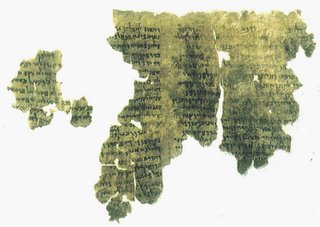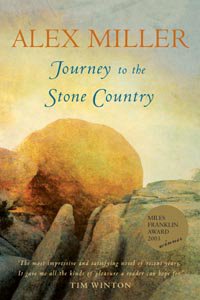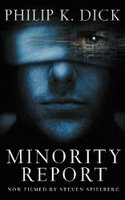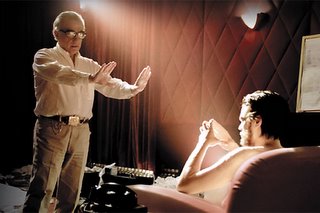
We have just lived through the 365 days of 2005. Enoch, one of the heroes of faith recorded in Hebrews chapter 11, lived for 365 years (Gen. 5:23). He walked with God all those years - one year for every single day we have just lived in the last calendar year, and then he simply “could not be found” for God took him away.
Well, we are all still here. God has not taken us away yet and unless he does so this year we have another 365 days to live through before next New Year’s Day. How will we live those days? As people of faith? As those who belong to the great list of heroes of the faith given here? Will we face our trials with faith and courage as our ancestors did or will we shrink back?
What is faith anyway? It’s defined for us in verse 1 - “Now faith is being sure of what we hope for and certain of what we do not see.” Faith is the substance (the Greek word is
hypostasis) of what we hope for. It is the “title deed” of things hoped for. (F.F. Bruce,
The Epistle To The Hebrews, 277.) If I have the title deed to a property, though the deed itself is not the property it is a guarantee of my possession of that property. In the same way our faith is a title deed to what God has promised.
Verse 6 gives us a bit more content and helps us to understand exactly what are these invisible things of which a person of faith is so certain. “Without faith it is impossible to please God, because anyone who comes to him must believe that he exists and that he rewards those who earnestly seek him.” We are people of faith then, not only if we believe in God but if we believe that he is a rewarder of those who seek him.
I like the way J. B. Phillips renders this verse - “The [one] who approached God must have faith in two things, first that God exists and second that it is worth a [person’s] while to try to find God.” A person of faith is a person who knows it is worth while to seek God and then having found him to live for him. As the great stories of the ancients demonstrate in this chapter, faith is not mere belief. Belief is a passive thing, whereas faith is active. I believe that 2 + 2 equals 4 but I can’t get very passionate about that. Faith on the other hand is a living and acting confidence in the invisible God. It involves a willingness to act as though living for God is a worthwhile proposition, as the great stories of the heroes of the faith given here make clear.
The writer of Hebrews draws his examples from across the entire range of the biblical story. He begins with creation in verse 3, “By faith we understand that the universe was formed at God's command, so that what is seen was not made out of what was visible.” He then goes on to characters from the Book of Genesis - Abel, Enoch, Noah, Abraham, Sarah, Isaac, Jacob, and Joseph (in verses 4-22). He then moves right into Exodus with Moses, the Deliverance from Egypt, and the crossing of the Red Sea in verses 23-29). Then it’s into the historical books from verse 30 on with the story of Jericho, Rahab, and then Gideon, Samuel, Samson, and David.
These are all people who thought it worthwhile to seek God and having found him to live for him. They walked with the same God we do. Joseph Hart’s eighteenth century hymn makes this clear:
The God who created the skies,
The strength and support of the saints,
Who gives them all needful supplies,
And hearkens to all their complaints:
This, this is the God we adore,
Our faithful, unchangeable Friend
Whose love is as large as His power
And neither knows measure nor end.
Not only did these ancients live as people of faith they also died as people of faith. “A church had a bulletin board decorated with pictures of soldiers who had been killed in service to their country. A little boy was looking up at the board when the pastor came up. He asked the little boy how he liked the board. The boy asked what it was about. The pastor explained that the pictures were the men from their church who had died in the service. The little boy said, “The morning service or the evening service?” Verse 13 tells us "All these people were still living by faith when they died." The people listed in Hebrews 11 died in the service of God. They lived faithfully and they died faithfully.
“Some were tortured and refused to be released so that they might gain a better resurrection.” This may well be a reference to the Jewish martyrs written about in the apocryphal book 2 Macabbees. Eleazar the faithful High Priest was tortured (the Greek verb strongly suggests the rack), and then his mother and seven sons were all tortured confessing that no matter what was done to their bodies they would get better ones at the resurrection. They could have allowed themselves to be released from their imprisonment and suffering but they had a better and more lasting release in mind that allowed them to endure their suffering with seemingly superhuman patience.
Those who were said to have “wandered in deserts and mountains, and in caves and holes in the ground” maybe also be the Maccabean martyrs who hid in caves from the armies of Antiochus Epiphanes and refused to defend themselves on the Sabbath Day and so were cruelly slaughtered. If so then our writer has taken us from Abel right through to the very edge of the arrival of the Messiah onto the scene. He has given us a potted history of the world up to that time.
It is clear from this list that some of the heroes of faith escaped martyrdom while others did not. Yet they were still heroes of faith either way. Elijah escaped the sword of Ahab and Jezebel but Elisha lost his life. Jeremiah was delivered from Jehoiakim but his fellow prophet Uriah was slain by Jehoiakim. Herod Agrippa I killed James the brother of John with the sword but Peter escaped the same fight. “By faith one lived by faith another died.” So it’s not that faith delivered people from their trials but faith was the quality with which they faced their dangers regardless of the outcome.
I like that story about the family getting ready for a trip for the first time to Disneyland the next day. That evening as the Dad was putting his son to bed, the boy hugged his father’s neck and said, "Dad, thanks for tomorrow."... People of faith are those who can thank their heavenly father for things not yet experienced but certain because promised.
 We spent four days in Bright last week, our usual sub-alpine summer holiday destination. This year we decided to stay in a cabin instead of camping, which was more expensive but less work. It wasn't quite the same however as you tend not to spend as much time out of doors. There was a fire ban on the first day of arrival but we did manage a nice campfire on the second night. I've got some nice pictures but for some reason I'm having trouble uploading them. I could, however upload the cover image of Alex Miller's Journey to the Stone Country winner of the 2003 Miles Franklin Award which segues nicely into my holiday reading report. Miller's novel, set in far North Queensland, functions as a kind of metaphor of the tenuous relationship between black and white Australians. Childhood friends Bo Renney of the Jangga tribe and Melbourne academic Annabelle Beck, recently returned to her ancestral home after a marriage bust-up, forge a new relationship based on a realistic view of their shared history. Once having stared into the face of the violence between their two families in the past they are able to set their sites on a possible shared future. The narrative drags a little in the middle section but the latter half of the book is particularly moving as both of the protagonists make discoveries about their past that force them to rearrange their present. I was attracted to the cover because I have always felt a kind of connection of some sort to monoliths. My friend Gerard Goldman at the Broken Bay Institute tells me it's part of my dreaming. Maybe so.
We spent four days in Bright last week, our usual sub-alpine summer holiday destination. This year we decided to stay in a cabin instead of camping, which was more expensive but less work. It wasn't quite the same however as you tend not to spend as much time out of doors. There was a fire ban on the first day of arrival but we did manage a nice campfire on the second night. I've got some nice pictures but for some reason I'm having trouble uploading them. I could, however upload the cover image of Alex Miller's Journey to the Stone Country winner of the 2003 Miles Franklin Award which segues nicely into my holiday reading report. Miller's novel, set in far North Queensland, functions as a kind of metaphor of the tenuous relationship between black and white Australians. Childhood friends Bo Renney of the Jangga tribe and Melbourne academic Annabelle Beck, recently returned to her ancestral home after a marriage bust-up, forge a new relationship based on a realistic view of their shared history. Once having stared into the face of the violence between their two families in the past they are able to set their sites on a possible shared future. The narrative drags a little in the middle section but the latter half of the book is particularly moving as both of the protagonists make discoveries about their past that force them to rearrange their present. I was attracted to the cover because I have always felt a kind of connection of some sort to monoliths. My friend Gerard Goldman at the Broken Bay Institute tells me it's part of my dreaming. Maybe so. From the past to the future, I enjoyed a collection of science fiction short stories from Philip K. Dick under the title of Minority Report, no doubt to cash in on the Spielberg movie of the same name. I had read two of the stories already, the title story and "Second Variety" in another collection of stories loaned to Jesse by Jon Case - The Variable Man. Quite a few of Dick's stories, apart from "Minority Report," have been filmed. "We Can Remember it For You Wholesale" became Total Recall, "Do Androids Dream of Electric Sheep" became Ridley Scott's Blade Runner, "Paycheck" became John Woo's Paycheck, and "Second Variety," which Jesse and I thought would make a good short film, became Screamers written by Dan O'Bannon (he of Alien and Dark Star fame) - beaten to the punch again Jess. These are pretty engrossing stories. Some, like "Oh, to Be a Blobel," about a human who involuntarily tranforms into a blob-like creature, after having fought a battle with this species on the other side of the galaxy, seem like the prose equivalent of a Silver Age Marvel comic (not that there's anything wrong with that). Others like "The Electric Ant" are chilling meditations on the nature of identity - does a cyborg with programmed memories fear extinction if his memory tapes are arranged? If it does fear extinction it must have consciousness. Is it therefore a "person" with a "soul"? Science fiction writers are often credited with anticipating future technology. What strikes me about these stories however is how they fail on that point. These stories, written between 1953 and 1969, do not seem to have anticpated digital technology at all - everything is on tapes and computers are still huge devices housed in separate buildings!
From the past to the future, I enjoyed a collection of science fiction short stories from Philip K. Dick under the title of Minority Report, no doubt to cash in on the Spielberg movie of the same name. I had read two of the stories already, the title story and "Second Variety" in another collection of stories loaned to Jesse by Jon Case - The Variable Man. Quite a few of Dick's stories, apart from "Minority Report," have been filmed. "We Can Remember it For You Wholesale" became Total Recall, "Do Androids Dream of Electric Sheep" became Ridley Scott's Blade Runner, "Paycheck" became John Woo's Paycheck, and "Second Variety," which Jesse and I thought would make a good short film, became Screamers written by Dan O'Bannon (he of Alien and Dark Star fame) - beaten to the punch again Jess. These are pretty engrossing stories. Some, like "Oh, to Be a Blobel," about a human who involuntarily tranforms into a blob-like creature, after having fought a battle with this species on the other side of the galaxy, seem like the prose equivalent of a Silver Age Marvel comic (not that there's anything wrong with that). Others like "The Electric Ant" are chilling meditations on the nature of identity - does a cyborg with programmed memories fear extinction if his memory tapes are arranged? If it does fear extinction it must have consciousness. Is it therefore a "person" with a "soul"? Science fiction writers are often credited with anticipating future technology. What strikes me about these stories however is how they fail on that point. These stories, written between 1953 and 1969, do not seem to have anticpated digital technology at all - everything is on tapes and computers are still huge devices housed in separate buildings! Finally, I have almost completed a book my daughter Ellen recommended to me. First They Killed My Father: A Daughter of Cambodia Remembers by Loung Ung tells the horrific tale of the survival of a young Cambodian girl whose middle class educated family members are targetted by the Pol Pot regime as enemies of the state. It's a harrowing first-person account of one of the worst incidences of genocide from that most bloodthirsty of centuries - the 20th.
Finally, I have almost completed a book my daughter Ellen recommended to me. First They Killed My Father: A Daughter of Cambodia Remembers by Loung Ung tells the horrific tale of the survival of a young Cambodian girl whose middle class educated family members are targetted by the Pol Pot regime as enemies of the state. It's a harrowing first-person account of one of the worst incidences of genocide from that most bloodthirsty of centuries - the 20th.
